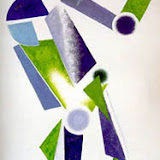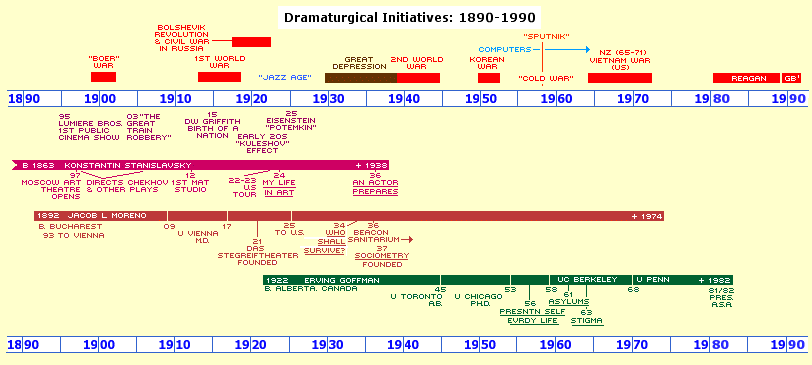[ advertising space : webmaster ]
text LINKS
Memory and Dramatic Form in Death of a Salesman Peter Szondi:
Arthur Miller's evolution from imitator to innovator, which occurred between the publication of his first two works, is the clearest example of that general change in style that both unites and separates the turn-of the-century dramatists and those of the present: the emergence out of dramatic form of a new formal structure for those epic elements that had previously only been given thematic expression. If this process, which is central to the developmental history of the modern theater, has, up to this point, been presented mainly in terms of comparison between the two periods, by contrasting Ibsen and Pirandello, Chekhov and Wilder, Hauptmann and Brecht, in Miller's case, as with Strindberg's earlier, it can be illuminated by the works of a single author.
[ in Arthur Miller's Death of a Salesman by Harold Bloom ]
Death of A Salesman; Links & Resources (from Australia onLine)!
Sister-Pages: American Drama, Part One O'Neill Also, T. Williams
THR 215 Images: Periods & Styles [ taken out ]
VIRTUAL THEATRE Subtitle: "Certain Private Conversations in Two Acts and A Requiem"
Willy Loman -- "low man"? Willy, not Bill.
Wife -- Linda!
Sons: Biff & Happy
..."Before us is the Salesman's house."
What is Salesman? Human? Man? Who is he? "Sold man" = slave? Again, "slave & master" theme!
American Dream and American Tragedy, or American Dream = American Tragedy?
"... We're free and clear. We're free. We're free... We're free..."
Money, work and freedom for self-slavery
American Christ
Death of a Salesman: Tragic Myth in the Modern Theatre -- Perhaps the dominant theme in the drama of the twentieth century is an attempt to recover" or, more precisely, to restate" a tragic apprehension about the human condition. A pervasive concern about the ultimate meaning of human suffering is reflected, in one way or another, in the work of all of the major playwrights of the twentieth century: in that of Ibsen, Strindberg, Chekhov, Shaw, Claudel, Synge, Lorca, and O'Neill, as well as in that of Pirandello, Brecht, Sartre, Camus, and more recently, Wilder, Williams, Beckett, Genet, Albee, and others.
[ in Bloom ]
2002: I do not know how much from the 20th century we can cover in DramLit; Pirandello, Lorca (should I drop O'Neil this time?), Brecht (Mother Courage), Williams (The Glass Managerie), Miller, Beckett, Shepard (Buried Child), Pinter (Betrayal), Mamet (Oleanna) [Kushner in THR413]. The Bedford Drama (too much already). What about Fornes (Conduct of Life) and August Wilson?
What is American drama?
Related pages: AmDrama, Am Century and "individual playwright" pages (Albee, Williams and etc.)

DJ XXI
Director's Book
View from the Future: 2004 -- Bergman & Kurosawa (main stage)
Summary
"A good newspaper, I suppose, is a nation talking to itself." --Arthur Miller
Questions
Willy Loman and The Soul of a New Machine: Technology and the Common Man Richard T. Brucher (Bloom)As Death of a Salesman opens, Willy Loman returns home "tired to the death." Lost in reveries about the beautiful countryside and the past, he's been driving off the road; and now he wants a cheese sandwich. But Linda's suggestion that he try a new American-type cheese—"It's whipped"—irritates Willy: "Why do you get American when I like Swiss?" His anger at being contradicted unleashes an indictment of modern industrialized America:
The street is lined with cars. There's not a breath of fresh air in the neighborhood. The grass don't grow any more, you can't raise a carrot in the back yard.In the old days, "This time of year it was lilac and wisteria." Now: "Smell the stink from that apartment house! And another one on the other side." But just as Willy defines the conflict between nature and industry, he pauses and simply wonders: "How can they whip cheese?"
The clash between the old agrarian ideal and capitalistic enterprise is well documented in the literature on Death of a Salesman, as is the spiritual shift from Thomas Jefferson to Andrew Carnegie to Dale Carnegie that the play reflects. The son of a pioneer inventor and the slave to broken machines, Willy Loman seems to epitomize the victim of modern technology. But his unexpected, marvelingly innocent question about whipping cheese reveals an ambivalence toward technology livelier and more interesting (and perhaps truer to the American character) than a simple dichotomy between farm and factory, past and present. Death of a Salesman engages an audience's attitudes toward technology: fear of the new and unfamiliar; marvel at progress; and the need, finally, to accommodate technology to cultural mythologies by subordinating it to personality. Willy's contradictions clearly indicate his alienation, but they recall Walt Whitman, too (that other restless Brooklynite who could sing enthusiastically of leaves of grass, lilacs, and locomotives in winter). "Do I contradict myself?" Whitman asks near the end of Song of Myself; "Very well then I contradict myself, / (I am large, I contain multitudes.)"
[ and - Death of a Salesman as Psychomachia (Bloom) ]
Notes
Dramlit 2004: Pirandello, then Brecht and only after them -- O'Neill > Williams and Miller!
THR215 DramLit
Arthur Miller @ Amazon *
Theatre on the Web:
Arthur Miller's Death of a Salesman and the American Dream William Heyen (Bloom):
Nothing about Death of a Salesman, once I step away from it, strikes me as quite believable, quite intelligent, quite intelligible, quite interesting. Characters, plot, even the language that so often falls into the poetry of romantic clich¨¦, will not quite bear scrutiny. Reviewing the play in 1949, one irritated critic [ Eleanor Clark] objected to its "speciousness." "The play," this reviewer said, "with its peculiar hodge-podge of dated materials and facile new ones, is . . . an ambitious piece of confusionism, such as in any other sphere would probably be called a hoax, and which has been put across by purely technical skills not unlike those of a magician or an acrobat." A hoax! Now, this is pretty strong and pretty silly. But, once I give the play some distance, almost everything about it irritates me or makes me laugh. But Salesman is much more than the sum of its parts. Once the curtains part, a flute begins to play and I am caught up in the poverty and dream and bitter bliss of the Lomans.
There is no question but that the play is elusive. As Miller himself has said, " Death of a Salesman is a slippery play to categorize because nobody in it stops to make a speech objectively stating the great issues which I believe it embodies." The play does not mirror, or reflect, or state; it embodies, and often puts us at a loss to enunciate the ideas and feelings it calls forth. That's the thing about Salesman: it reverberates, echoes, resonates. Its rhythms roll deep down toward and into American desires and delusions. Fear, pity, a sense of loss for what might have been, a qualified joy for Willy's happiness as he commits suicide¡ªthese are the inescapable and elusive feelings experienced during the play. There are a hundred ways to see the play, as Miller himself knew, bogus ways and true ways. We can smile when Miller tells us that as one audience left the play he heard a man, probably a salesman, tell another that New England always was a lousy territory. But something about the play strikes deep now, and did in 1949, and will. This something is the poetry of the play, not something that can be isolated in particulars, but the way the whole play ranges out from its center which is Willy, the way it echoes far past its own American images, the way it demands a hearing for its own sentimentality and exaggeration. The great issues the play embodies are human issues brought to a focal point on the American continent. We've had enough formal criticism of Salesman, and I have little or nothing to add of that. But I want to tell how the play feels and smells and looks to me. To do this I've got to range all over and throw out nets and come up with whatever butterflies or fish I can. To do this, I have to take the sorts of risks that Miller took in writing such a simple and absurd and beautiful and true play.
Willy Loman by Harold Bloom; Chelsea House, 1991 :
[ - The Analysis of Character - Editor's Note - Introduction - Critical Extracts - Critical Essays - Introduction to Collected Plays - Death of a Salesman: a Symposium - The Articulate Victims of Arthur Miller - Willy Tyrannos - Death of a Salesman: a Salesman's Illusion - The Salesman and Society - Sales and Solidarity - Arthur Miller - Dramatic Rhythm in Death of a Salesman - Women and the American Dream of Death of a Salesman ]
2005 THR215 Dramatic Literature: new Williams Pages = The Glass Menagerie ("Seven Scenes").
From Williams to Miller (Death of a Salesman) 2005 *
Dramatic Literature Fall 2007
google.com/group/playwright
pomo americana:
Edward Albee: A Casebook by Bruce J.Mann; Routledge, 2003 - 1: Three Tall Women: Return to the Muses - 2: Edward Albee: a Retrospective (And Beyond) - 3: Absurdly American: Rediscovering the Representation of Violence in the Zoo Story - 4: "Good, Better, Best, Bested": the Failure of American Typology in Who's Afraid of Virginia Woolf? - 5: Like Father, like Son: the Ciphermale in a Delicate Balance and Malcolm - 6: Forging Text into Theatre: Edward Albee Directs Box and Quotations from Chairman Mao Tse-Tung - 7: A Demistified Mystique: All Over and the Fall of the Cult of True Womanhood - 8: The Lady from Dubuque: into the Labyrinth - 9: Postmodernist Tensions in Albee's Recent Plays - 10: Directing Three Tall Women - 11: Interview with Edward Albee
* NEW: goto.txt : AFTER 2009 : LUL pages : teatr.us Go.dot 2006 * * 100 years since Sam Beckett's birth * flickr.com/groups/stage * 2007 : the art of theatre [flickr] * 2008 : Stoppard *
...
 |
| theatre |
 THR413 Writing assignments: 200 words post after reading each play (plus, oral presentation). Midterm Paper (Outline, 1st Draft, Final), Final (and/or the Scene -- the same three stages or rewrites), tests.
THR413 Writing assignments: 200 words post after reading each play (plus, oral presentation). Midterm Paper (Outline, 1st Draft, Final), Final (and/or the Scene -- the same three stages or rewrites), tests.













